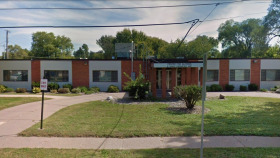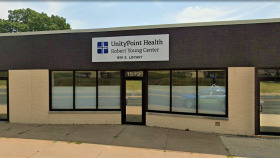Alcohol and Drug Use Statistics in Davenport
Davenport and Scott County are in the southeast substate of Iowa. The alcohol and drug use statistics for the southeast are as follows:2, 3,4,5
About 12% of residents 12 years and older used marijuana in the past year between 2016 and 2018.
About 4% of residents 12 years and older misused prescription drugs in the past year between 2016 and 2018.
Almost 62% of adults reported drinking at least drink in the past month in 2017.
Paying for Alcohol and Drug Rehab in Davenport
Several options for funding alcohol and drug rehab in Davenport reduce the economic burden of treatment. Some programs may offer free or low-cost treatment through rehab scholarships. Another option for reducing the cost of therapy would be to use your private health insurance or government health coverage. Free and low-cost drug and alcohol treatment options include the following: 6
Government-funded rehab facilities: Some alcohol and drug treatment centers in Davenport, Iowa, receive state funding to enable them to provide low-cost and free rehab. State-funded programs such as opioid treatment programs are highly regulated methadone clinics that dispense methadone to treat opioid use disorder.
State-funded rehab Residents in Davenport have access to state-funded rehabs that receive funding from the government to provide low-cost and free care to those who can’t otherwise afford drug rehab. State-funded rehabs include opioid treatment programs (OTP), highly specialized clinics with permission to dispense methadone for opioid addiction treatment.
Rehab scholarships: Some rehab centers offer rehab scholarships to cover part or all the cost of treatment. Rehab scholarships are an option to lower treatment costs if you have limited funding. You should call the program to find out the terms of the scholarship before signing up since some programs can terminate funding when you stop treatment leaving you with the entire bill.
Free drug and alcohol rehab centers in Davenport and Scott County include the following:
- CADS Center for Alcohol and Drug Services Country Oaks
- ASAC Area Substance Abuse Council DeWitt
- Rosecrance New Life Outpatient Center Paul Revere Square
Private Insurance, Medicare, and Medi-Cal
You can significantly lower the cost of rehab in Davenport, IA, if you have private insurance, Medicaid, or Medicare. Many rehabs in Davenport accept private insurance coverage from insurers like Blue Cross Blue Shield, Aetna, Cigna, and others. The amount of coverage will depend on the company and your plan. You can call the number on the back of your insurance card to discuss insurance details and determine the extent of coverage.
Medicare
Medicare is an insurance coverage plan from the federal government. You are eligible for Medicare if you are 65 years or older. However, you may be eligible if you are less than 65 and have certain medical conditions such as end-stage renal disease (ESRD).7 Medicare covers the following treatments for drug and alcohol use disorder:8
- Alcohol misuse screenings
- Behavioral health integration services
- Inpatient
- Outpatient
- Partial Hospitalization
- Opioid use disorder treatment services
- Telehealth
Medicaid
Medicaid is funded by the state and federal governments. Eligibility for Medicaid is determined by income; however, you need to meet the special eligibility criteria for Medicaid in Iowa, such as:9
- Under 21 years of age
- Parents with a child under 18
- Pregnant woman
- Elderly (65 or older)
- Disability per social security standards
- Income below 133% of the Federal Poverty Level and between 19 and 64 years of age
- Iowa residency and U.S. citizenship
Medicaid services differ from state to state. However, if you have Iowa Medicaid you may receive rehab services from the following locations in Davenport, IA:10
- Clinics
- Federally Qualified Health Centers (FQHCs)
- Rural Health Clinics
- Community Health Centers
- Indian Health Services (HIS), tribes or tribal organizations, or urban Indian organizations (I/T/Us)
How Easy is it to Travel to and Within Davenport, IA?
 You may be considering traveling to Davenport, IA, for rehab or to support a loved one in treatment there. Whatever the reason for traveling to Davenport, local information about the city will help make your trip more pleasant.
You may be considering traveling to Davenport, IA, for rehab or to support a loved one in treatment there. Whatever the reason for traveling to Davenport, local information about the city will help make your trip more pleasant.
Davenport is known for being the most livable small city in America. You may want to explore Davenport and its famous attractions, such as Lindsay Park, Chocolate Manor, Figge Art Museum, Putnam Museum, Science Center, Village of East Davenport, and the Davenport Skybridge during your stay in this midwestern city. You can travel to and from Davenport by air or train using Amtrak. The Quad City International Airport is only 10 miles from Davenport. Other airports like the Dubuque Regional Airport, Eastern Iowa Airport, and Southeast Iowa Regional Airport are between 50 to 100 miles away from Davenport.
You can enjoy the Mississippi River, music festivals, parks, and other attractions while in Davenport. Most of the tourist attractions, shops, businesses, and restaurants are within walking distance of the bus routes. However, you may have to rely on public transport to visit your loved one in rehab since Davenport is considered a car-dependent city.
The Davenport CitiBus transit system, with bus routes covering about 30 square miles, will make travel with the city less of a hassle. Davenport has numerous hotels and many budget-friendly options that will make your stay affordable. With a convenient public transport system and diverse hotel options, you can seek rehab or visit a loved one in Davenport without breaking your budget.
Resources
- United States Census Bureau. (n.d.). QuickFacts: Davenport City, Iowa, United States.
- Scott County. (2022). Iowa Expands Naloxone Initiative.
- Substance Abuse and Mental Health Services Administration. (n.d.). 2016-2018 NSDUH Substate Region estimates – Tables.
- Quad Cities 2016 Community Health Assessment. (2017). Behavioral Health & Substance Use – Scott County, Iowa.
- Centers for Disease Control and Prevention. (2020). U.S. County Opioid Dispensing Rates, 2018.
- Iowa Department of Public Health. (2022). Opioid Treatment Programs (OTP).
- HHS.gov. (2014). Who is Eligible for Medicare?
- Medicare.gov. (n.d.). Mental health & substance use disorder services.
- Iowa Department of Human Services. (2022). Who Receives Medicaid?
- Iowa Department of Human Services. (2022). What Services Are Available?








